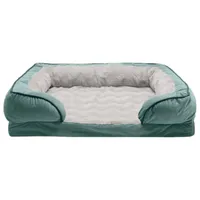Caring for a senior dog? I’m a dog behaviorist and these are my 10 top tips
If you want to learn more about caring for a senior dog, my tips can help you navigate this new life chapter.
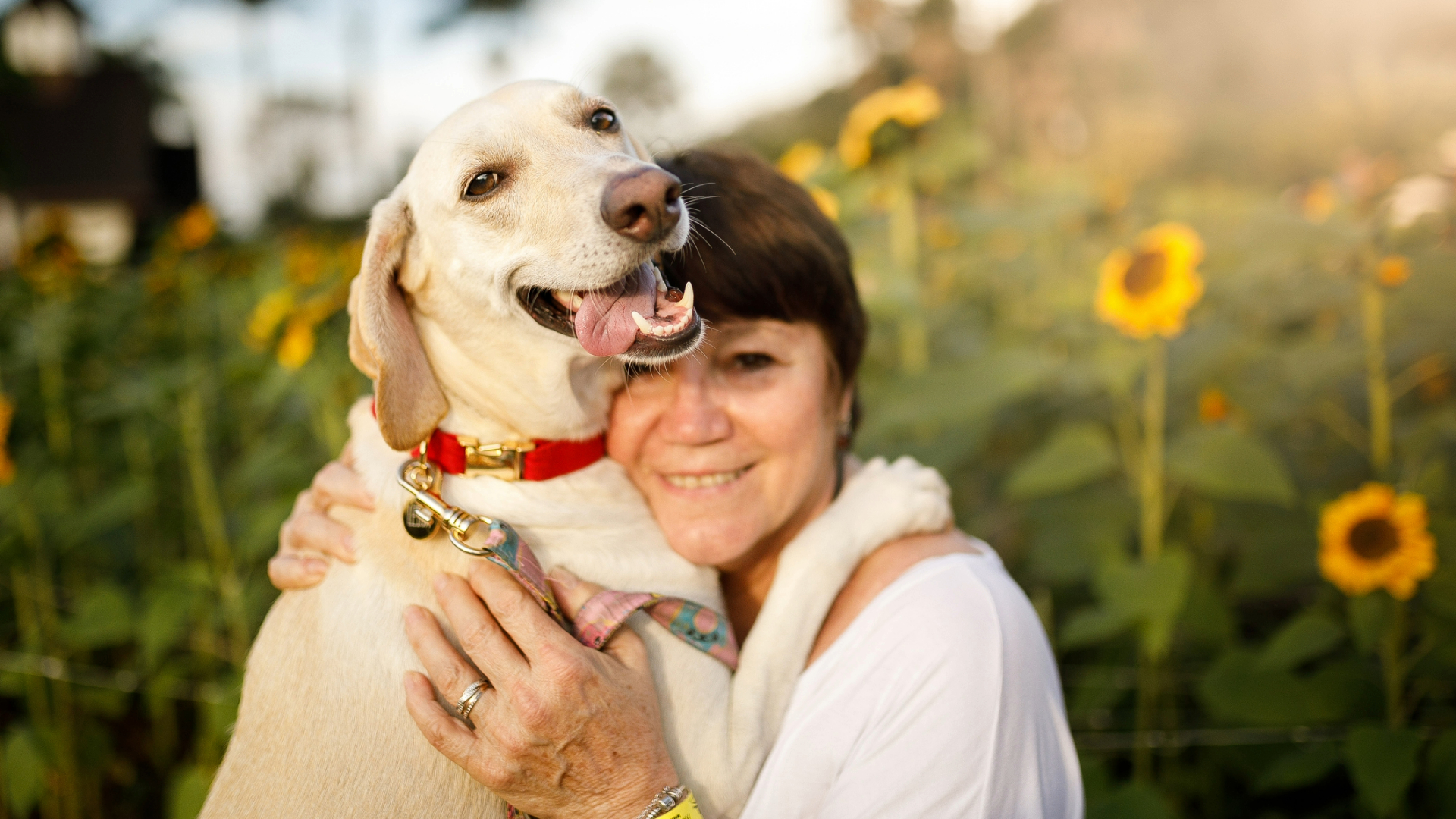
It can be hard to see our dogs slow down and lose interest in the activities they once loved, but caring for a senior dog can be a beautiful experience, sharing special moments in their twilight years.
As your dog gets older, their needs change. Caring for a senior dog was challenging with my first two dogs. I was a teenager and wasn't prepared. Over a lifetime with dogs, I've learned to recognize the signs of aging and know what to do for each stage.
I'm a qualified dog behaviorist and have loved and lost eight dogs in my lifetime. The youngest was nine, and the oldest was Cassie, a whippet/labrador who was fit and active until she passed at sixteen and a half.
Dogs are living longer due to better diets and veterinary care. Some dogs still act like puppies in their old age, and others become more sedentary. It depends on lifestyle, history (for a rescue dog), and genetics.
Your dog may lose their hearing or sight, become less mobile, or, in the later stages of life, develop neurological issues like doggy dementia. However, they don't have to lose quality of life and can still enjoy the best long lasting dog chews.
You can do many things to keep your furry friend happy, healthy, and safe. This guide to caring for a senior dog provides 10 top tips to help you manage your dog's senior years, so you can make their life more comfortable:
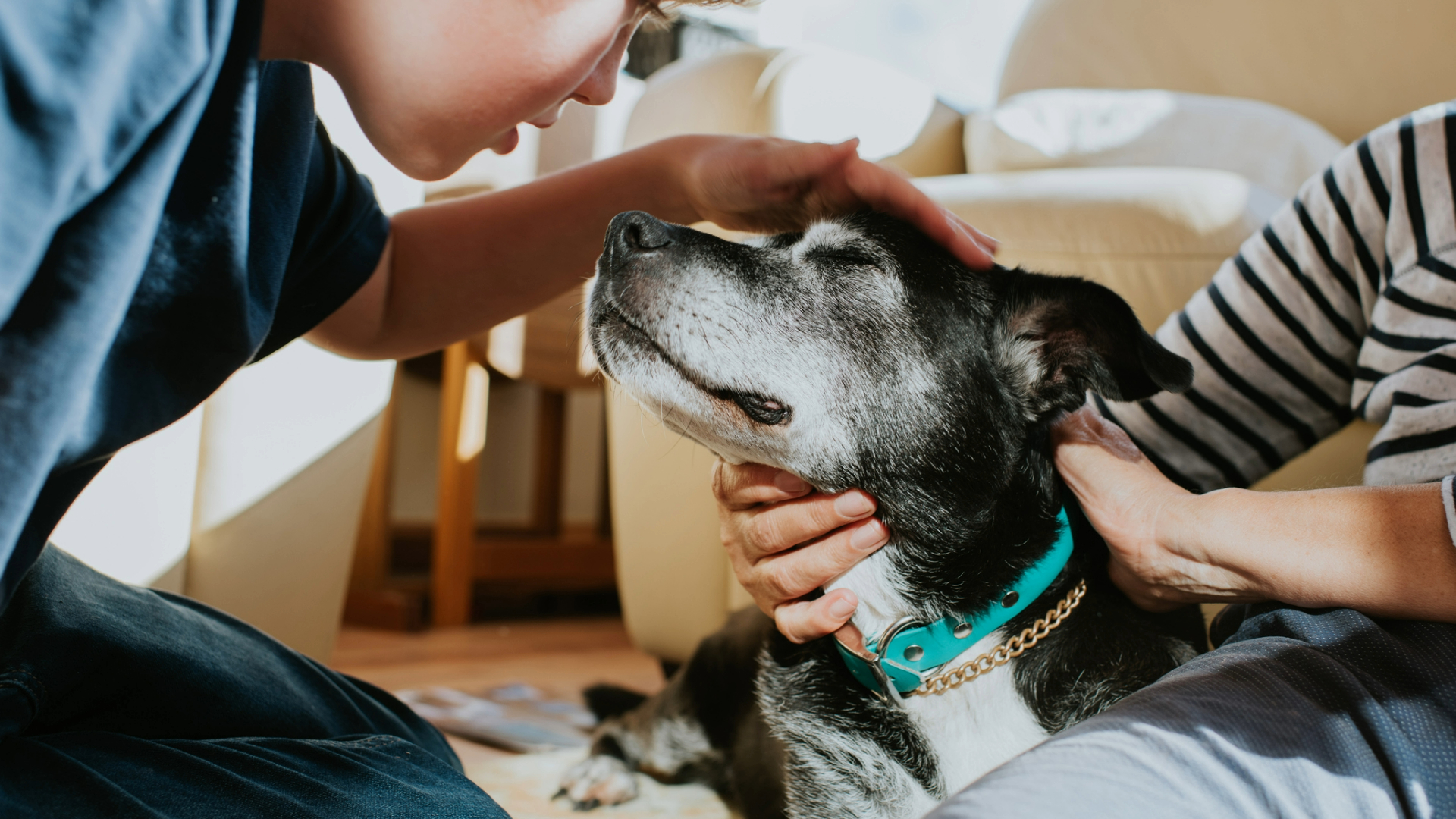
10 top tips for caring for a senior dog
1. Exercise your dog regularly
Get the best advice, tips and top tech for your beloved Pets
Your furry friend will slow down as they reach their senior years, but keeping them moving is essential for their well-being and mobility. Exercise helps keep the joints supple and keeps your dog interested in life. You may find they cannot tolerate as much exercise as when they were a pup, so adjust their activity levels to what they can manage. Wondering, ‘How much exercise do dogs need?’ This article has the answer for you.
2. Spend time with your senior dog
It's so important to spend time with your dog. Dogs' lives seem to pass in the blink of an eye, and they depend on you to care for them as they become frail. My dog, Cassie, stopped eating during the last month of her life, and I spent every waking moment with her. When we had to let her go, I took solace from sharing that special time with her.
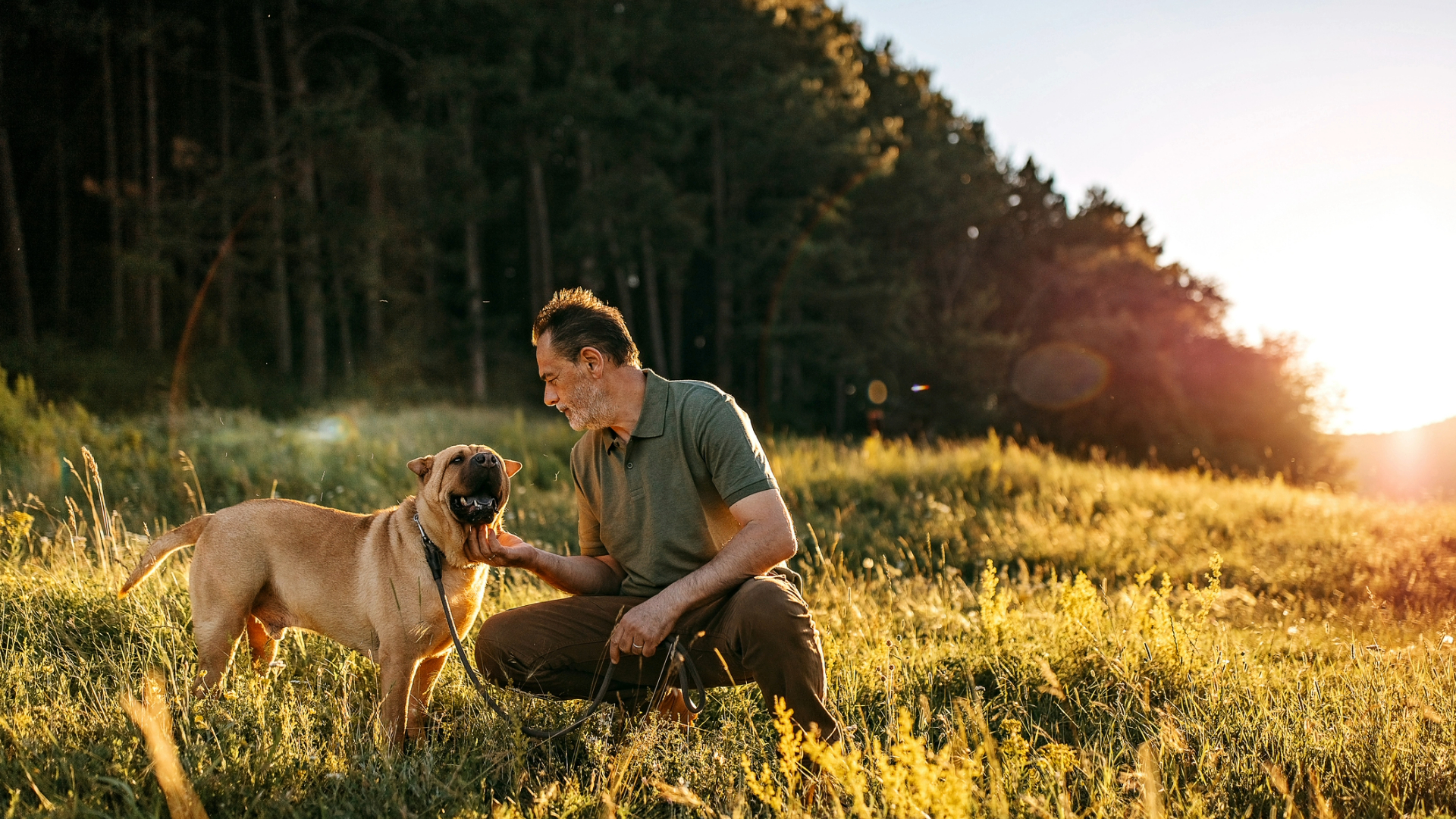
3. Arrange regular vet checks
Even if your senior dog is fit, active, and in super condition, regular vet checks every six months can spot early signs of illness like kidney disease or other internal changes. Early detection of potential problems could result in a diet, exercise, or medication change to help your dog maintain his quality of life.
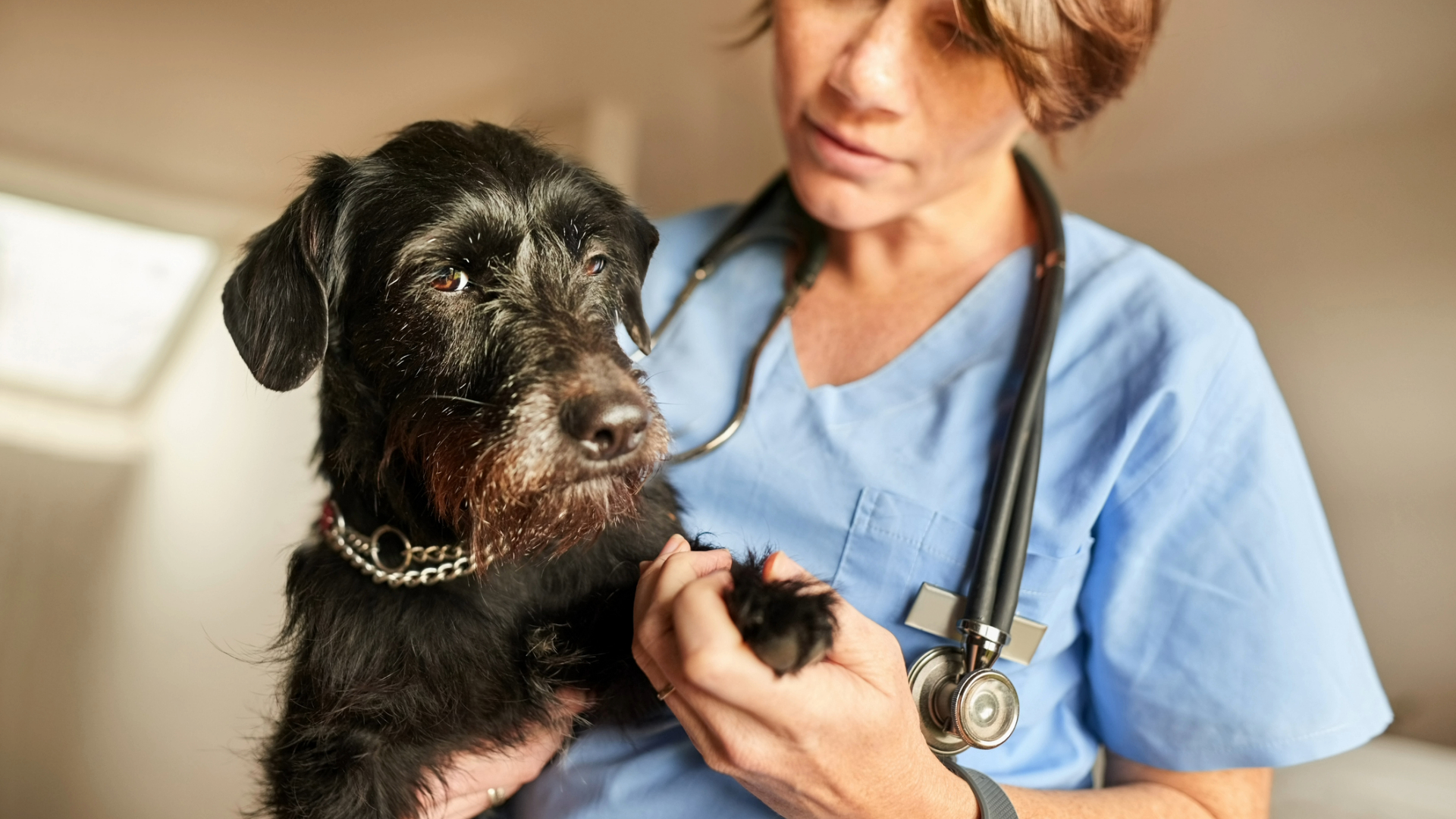
4. Check your dog's teeth regularly
As your dog ages, you may notice they develop bad breath. As pups, dogs have lovely, shiny white teeth, but as they age, tartar builds up and can cause tooth decay, gum disease, and health issues. Getting your dog used to having his mouth handled as a puppy is beneficial so you can brush their teeth and help prevent tartar build-up.
5. Monitor your dog's weight
Keeping your senior dog lean can be tricky if they become less mobile. You may need to adjust food quantities to keep them at a healthy weight. However, it’s important to consult your vet before making any big changes to your dog’s diet. If your dog becomes overweight, it strains the joints and can cause other health issues. If their food levels need adjusting, try healthy treats like carrot strips instead of giving dog biscuit treats.
6. Monitor your senior dog's eating and drinking habits
It's not uncommon for senior dogs to develop kidney disease. If your dog drinks more than usual, ask your vet to test a urine sample. Your dog's appetite may change; foods they once loved no longer appeal to them, or they may eat less. Conversely, some senior dogs become obsessed with food.
Your vet may advise you on switching to senior dog food. You might enjoy our helpful guide for the best dog food for senior dogs.
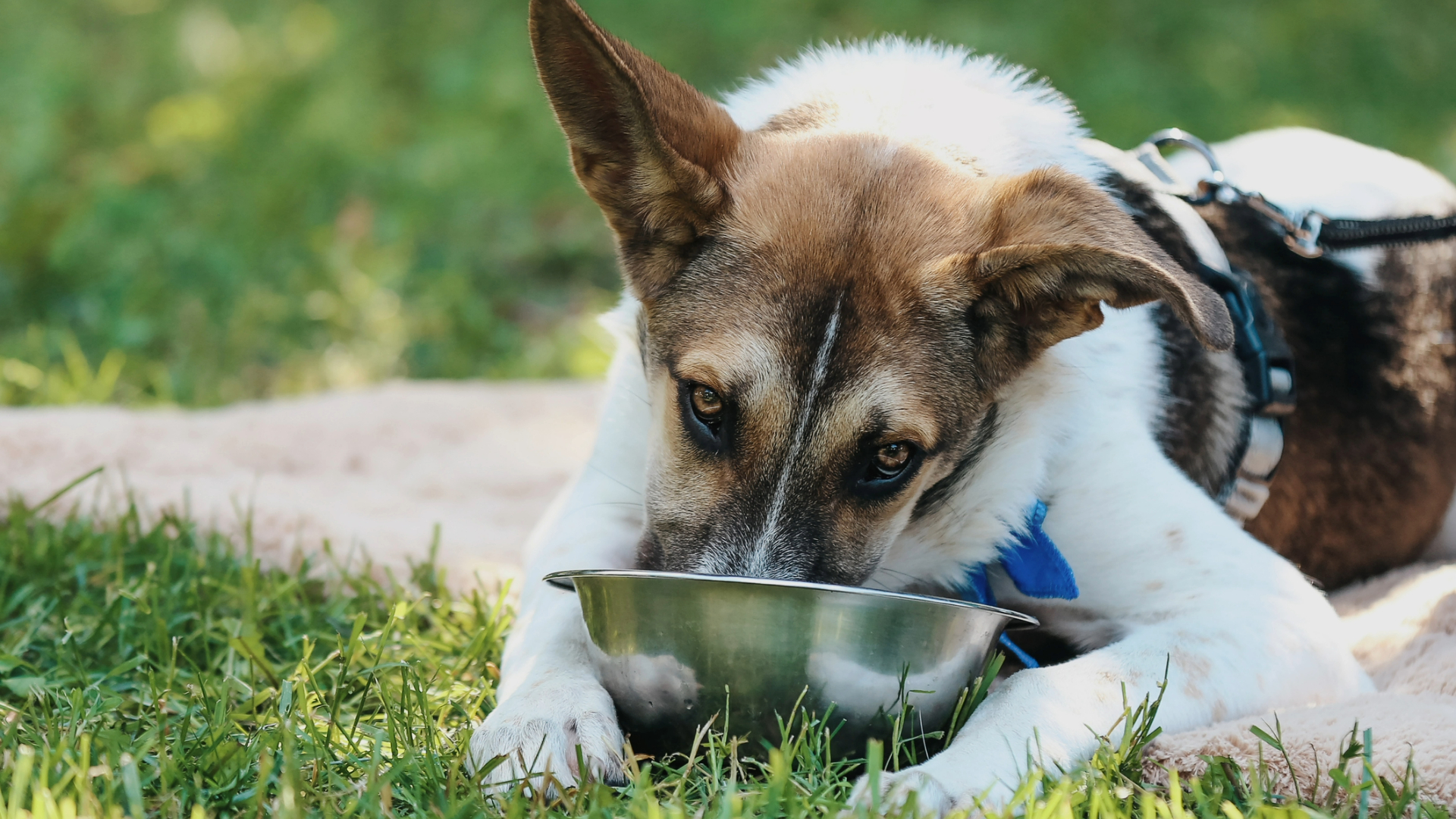
7. Check for lumps and bumps
Many senior dogs develop lumps and bumps, but most are harmless. Fatty lumps, lipomas, sebaceous cysts, and skin tags won't cause problems, but it's always worth getting soft or hard lumps checked by a veterinarian. Check for lumps and bumps when your dog is relaxed, when grooming them, or when they’re cuddled up next to you. Check all over, including inside the folds of skin at the back of your dog's legs.
8. Make your home senior dog-friendly
If your dog is allowed on the furniture, you may notice they have difficulty jumping onto the couch or bed. You can buy or make a doggy ramp or get creative. I purchased a recycled, tough plastic box and put a vet bed on the top for my 12-year-old dog, Pepper, to use as a step-up.
Your dog might find it harder to grip if you have slippery floors. Invest in a few carpet runners or rugs to help your dog navigate a tricky surface. Avoid moving furniture around too often, especially if your dog's eyesight deteriorates.
PetSafe CozyUp Foldable Wooden Cat & Dog Ramp, Espresso
This pet ramp will make your senior dog’s life a whole lot easier. Simply place it against your couch and they’ll be up to snuggle up next to you. If you’re concerned about storage, you’ll be happy to find out that it folds in half, making it easy to put away.
9. Treat your senior dog to a comfortable bed
Arthritis in dogs and stiff joints are both common - especially in older pooches. There are lots of ways that you can support them, and they will definitely appreciate the best orthopedic dog bed to relax on.
FurHaven Velvet Waves Perfect Comfort Orthopedic Sofa Cat & Dog Bed
This plush doggy bed has an orthopedic foam base and wrap-around bolsters to support your dog's joints. The bed has a zippered cover that is machine washable in case your senior dog has an odd accident. We have a guide to the best dog beds if you prefer to browse a range of doggy beds.
10, Provide your dog with mental stimulation
As your dog ages physically and becomes less mobile, they may need more mental stimulation. It's never too late to teach an old dog new tricks; they love learning something new. Instead of the long walks you and your dog used to enjoy, take time to learn some great brain games for dogs. They will love engaging with you and feeling like a clever doggy.
We hope you enjoyed learning how to care for your senior dog.
For more information on managing life with a senior dog, we created an excellent guide to discover the eight signs your dog is getting old. If you rescued an elderly dog, you might enjoy our guide on rescue for senior dogs.

Jan is a dog behaviorist and writer living in the Cotswolds, UK. She qualified as a dog behaviorist in 2012 after training with Sarah Whitehead, a Certified Clinical Animal Behaviorist with a MSc in Animal Behavior. Jan has shared her life with dogs for over fifty years and is fascinated by behavior. She enjoys helping people better understand their dogs to develop a deep bond and enjoy time together. Jan particularly enjoys working with impulsive and reactive dogs as her legacy from helping Poppy, her rescue Weimaraner cross overcome fear reactivity.

